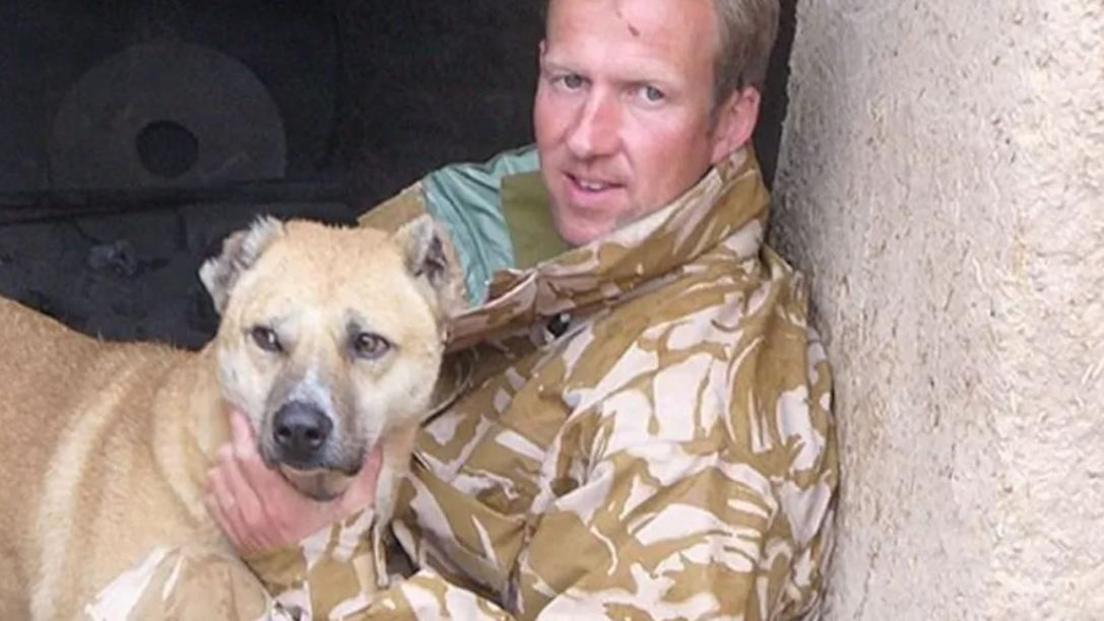'I saw the Taliban shoot women and girls'
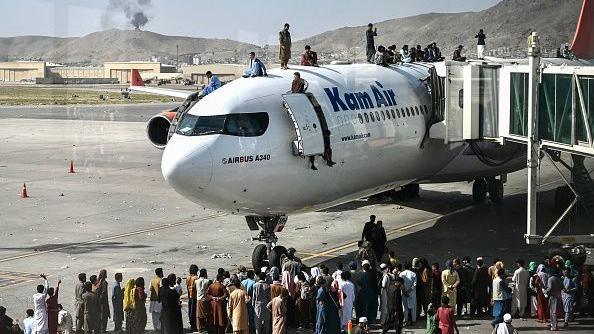
Thousands headed to Kabul airport to escape Afghanistan in August 2021, after the Taliban suddenly took control of the country
- Published
A woman who fled Afghanistan when the Taliban took control three years ago says she fears for those she left behind.
Sosan and her husband came to London in 2023 and have been granted indefinite leave to remain in the UK through the government's resettlement scheme, along with thousands of other Afghan nationals now living in the capital.
"I was in Afghanistan and I saw the Taliban shoot women and girls, just because they didn’t wear the hijab," she says.
"Women are all in danger I think in Afghanistan, doesn’t matter who she is," she adds.
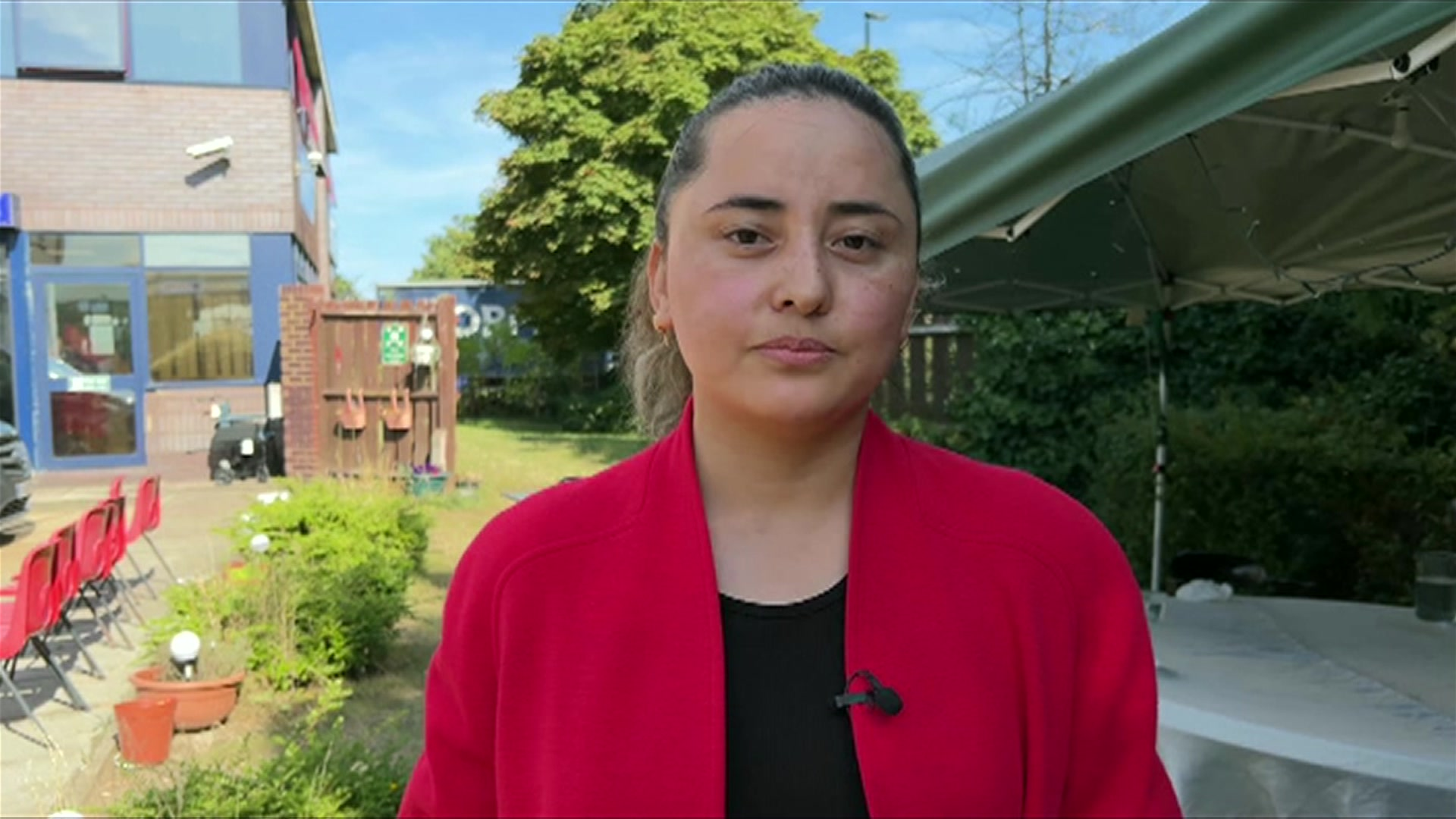
Sosan came to London in 2021 with her husband after the Taliban took control in Afghanistan
Sosan says many of her family and friends were unable to escape when the Taliban took control, and have been unable to work or access education in the country ever since.
She says reports of her closest friend being punished by the Taliban for leaving the house without a hijab have haunted her.
"It was so hard for me to hear about her. The Taliban tortured her, and maybe they want to kill her," she tells the BBC.
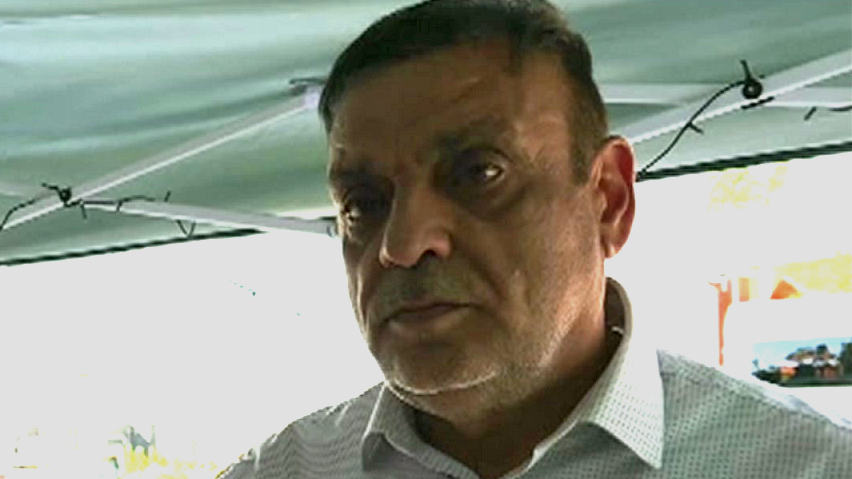
Rafiq grew up in Afghanistan and says he has been sent videos that show Taliban brutality
Rafiq has been living and working in the capital for the past 13 years, but grew up in Afghanistan.
"We say every day they kill our young people in Afghanistan," he says.
'He wants to cry'
Showing a video he has been sent over WhatsApp only yesterday, Rafiq says it shows one of many civilian murders carried out by the Taliban.
He also says that news from the region is often censored, to prevent the world outside from witnessing the scale and extent of Taliban brutality.
Visibly upset and with tears in his eyes, Sosan translates for him: "When he sees this kind of video he wants to cry, and when he sees the videos he shakes."
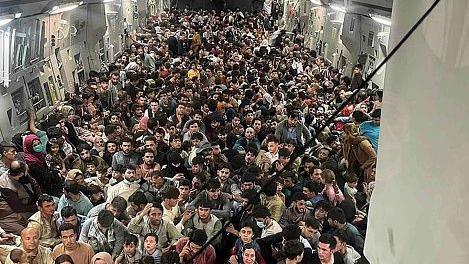
One of the most striking images from the Taliban takeover - hundreds of Afghans packed into a US military cargo plane as they fled Kabul
The Afghanistan and Central Asian Association centre (ACAA) in Feltham has supported people arriving in London ever since the evacuation began.
"Here in Feltham we’re surrounded by lots of bridging hotels around Heathrow Airport and people have been separated for three years," says the ACAA's Darius Nasimi, the first British-Afghan Conservative candidate in the 2022 local elections.
"There are lots of people who have arrived recently because of family reunification and there’s always an ever increasing need to support them because there’s lots of pressure on the local authorities," he says.
'Anxiety'
Mr Nasimi adds: "During the recent riots that were happening across the UK, there was a hotel that came under attack and the asylum seekers living inside, some of them were from Afghanistan, so they felt quite unsafe."
Dr Nooralhaq Nasimi, founder and director of the ACAA, says: "The anxiety of the people gets worse day by day.
"You see millions of people going to the streets in London to support the people of Palestine, but millions of people in the UK don’t know what’s going on in Afghanistan."
The government says 17,039 people have arrived in the UK from Afghanistan via the Afghan Resettlement Programme as of the end of March 2024, with 2,562 in London.
Most came as part of Operation Pitting, the British military operation to evacuate British nationals and Afghans from Kabul, which began in August 2021, with some close family members being brought over afterwards.
The government told the BBC that long-term immigration had been granted to those who were identified for evacuation from Afghanistan.
Listen to the best of BBC Radio London on Sounds and follow BBC London on Facebook, external, X, external and Instagram, external. Send your story ideas to hello.bbclondon@bbc.co.uk, external
- Published21 July 2024
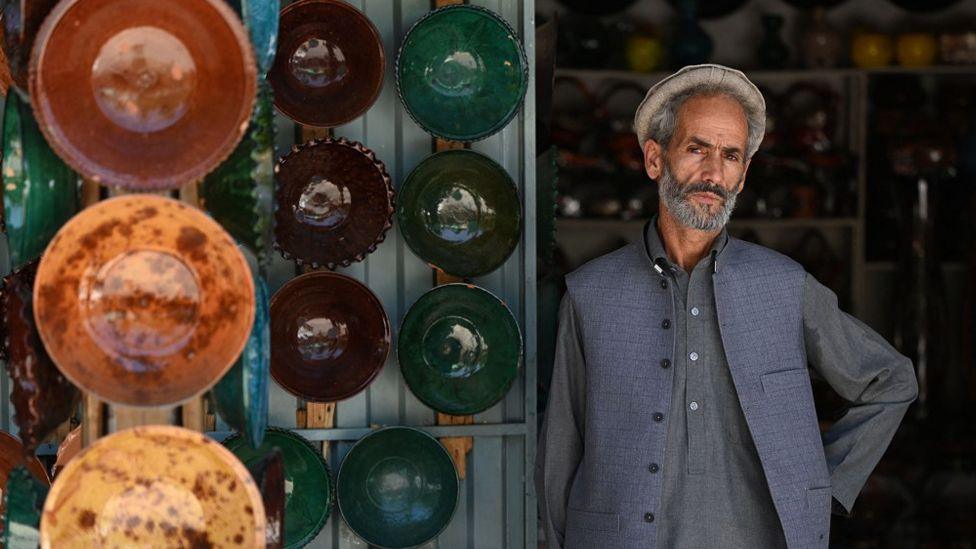
- Published17 July 2024

- Published8 July 2024
